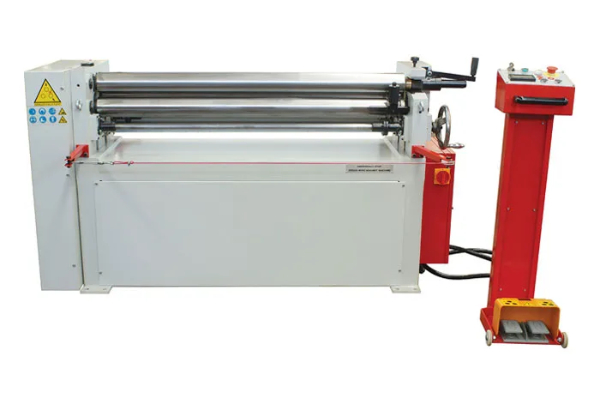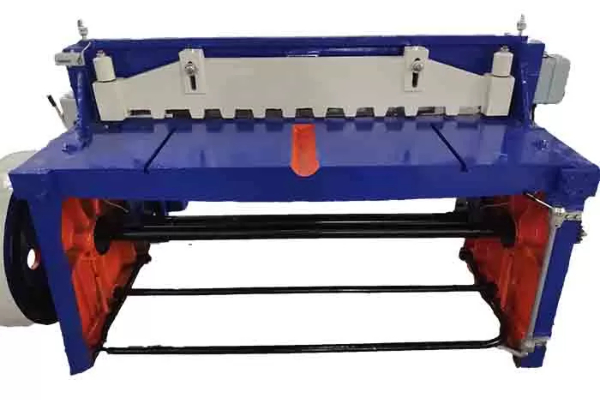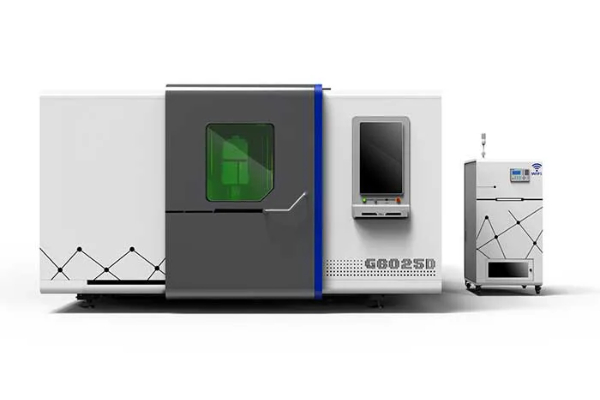
Fabricating Future Success- Trends and Innovations in Metal Folding Technology
- By:Metmac
- 2024-05-15
- 139
Advancements in metal folding technology are revolutionizing the manufacturing industry, enabling unprecedented levels of precision, productivity, and flexibility. Fabricating Future Success: Trends and Innovations in Metal Folding Technology delves into the transformative trends and innovations shaping this field.
Evolution of Automation: Robotic Folding
Automation is transforming metal folding processes, introducing advanced robotic systems that can perform precise and repetitive tasks. These robots are equipped with sophisticated sensors and AI algorithms, allowing them to monitor and adjust their operations in real-time. Robotic folding eliminates the need for manual labor, enhances accuracy, and increases productivity.
Digitalization and Smart Manufacturing
Digitalization is driving the integration of advanced manufacturing technologies, connecting and optimizing the production process. Smart folding machines leverage IoT, cloud computing, and predictive analytics to monitor performance, detect anomalies, and optimize operating parameters. Digitalization enhances efficiency, reduces downtime, and improves overall quality control.
Advanced Material Handling: Integrated Systems
Integrated material handling systems seamlessly automate the entire metal folding process, from material loading to unloading. These systems consist of automated conveyors, robotics, and software that manage material flow, minimizing labor requirements and reducing material handling errors. Integrated systems enhance efficiency, reduce lead times, and improve workplace safety.
Laser-Assisted Folding: Precision and Speed
Laser-assisted folding combines advanced laser technology with traditional mechanical folding techniques. By utilizing a focused laser beam to weaken the metal along specific fold lines, it enables sharper and more precise folds with reduced springback. Laser-assisted folding enhances the accuracy, speed, and repeatability of the folding process.
Simulation and Optimization: Virtual Prototyping
Advanced simulation software enables engineers to create virtual models of metal folding processes, optimizing designs and parameters before production. Simulation tools simulate material behavior, folding forces, and potential defects, allowing for the identification and resolution of issues early in the design stage. Virtual prototyping reduces scrap rates, design iterations, and time-to-market.
Sustainability and Green Manufacturing
Metal folding technology is embracing sustainable practices, reducing environmental impact and promoting green manufacturing. Advanced machines incorporate energy-efficient designs, use renewable energy sources, and employ innovative cooling techniques to minimize carbon footprint. Additionally, new materials and lubricants promote recyclability and reduce waste.
Conclusion
The advancements and innovations highlighted in Fabricating Future Success: Trends and Innovations in Metal Folding Technology are driving a transformation in the manufacturing landscape. Automation, digitalization, intelligent material handling, laser-assisted folding, simulation, and sustainability are the cornerstones of future success. These trends empower manufacturers to achieve unprecedented levels of productivity, efficiency, and precision, enabling them to remain competitive and innovative in an ever-changing global market.
-
The Advantages of Using a Sheet Roll Forming Machine in Manufacturing
2024/09/14 -
How to Optimize Your Laser Sheet Cutting Machine for Maximum Performance
2024/09/12 -
How to Maximize Efficiency with Modern Sheet Metal Working Machines
2024/09/04 -
The Environmental Benefits of Using Duct Board Grooving Machines
2024/09/03
-
Improving Accuracy in Metal Fabrication with Laser Metal Shear Machines
2024/05/11 -
Latest Technological Advancements in Rectangular Duct Machines
2024/05/11 -
Integrating Automation with Rectangular Duct Machines for Enhanced Productivity
2024/05/11 -
Metal Shear Machines- Essential Tools for Precision Metal Cutting
2024/05/11
-
A Guide to the Latest Innovations in Sheet Metal Folding Machines
2024/11/29 -
Key Features to Consider When Investing in a Sheet Metal Folding Machine
2024/11/28 -
Enhancing Precision with Advanced Sheet Metal Folding Machines
2024/11/27 -
How to Choose the Right Sheet Metal Folding Machine for Your Workshop
2024/11/26



